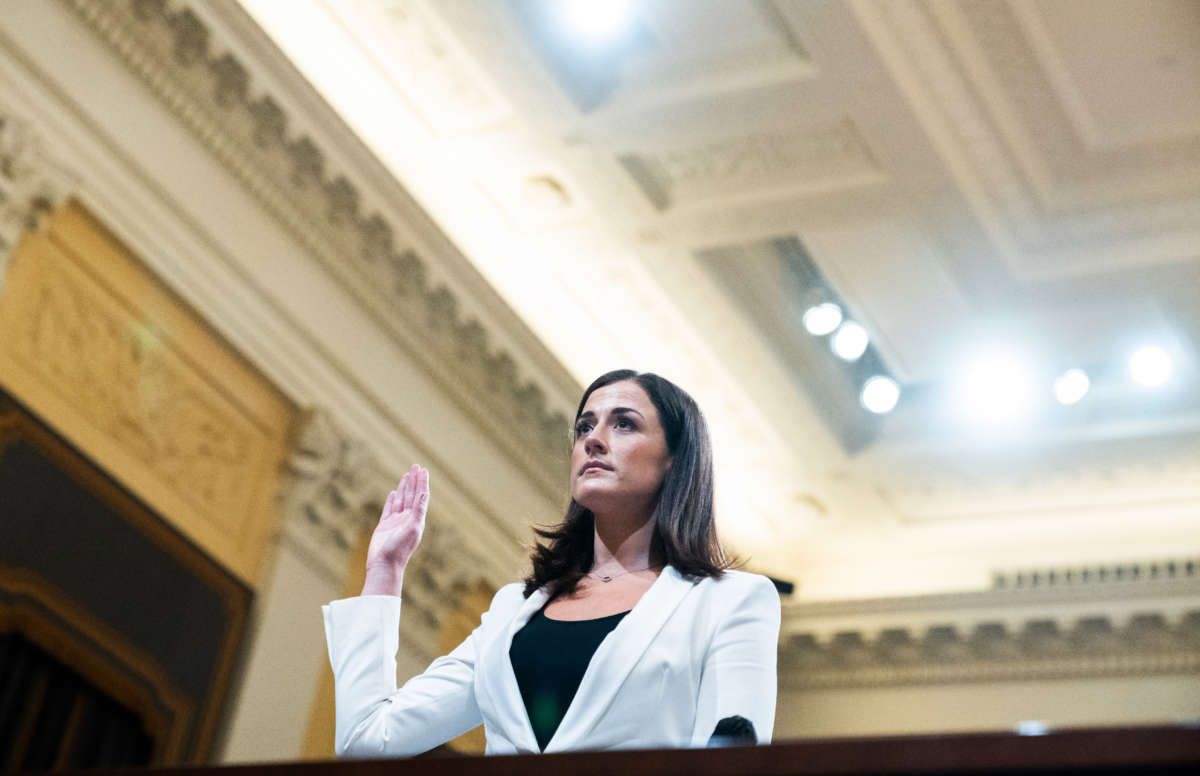Secret Service Deputy Director Tony Ornato abruptly retired on Monday just two days before he was scheduled to be interviewed by Jan. 6 investigators.
Ornato, who made the unprecedented transition from the Secret Service to the Trump White House as deputy chief of staff for operations, pushed back on former White House aide Cassidy Hutchinson’s testimony to the House Jan. 6 committee earlier this year, disputing her claim that former President Donald Trump lunged at a Secret Service agent after he was told he couldn’t accompany his supporters to the Capitol. Though anonymous agency sources told media outlets Ornato was willing to testify under oath, Ornato has yet to agree to an interview with the Jan. 6 committee and recently retained a private lawyer.
Ornato, who since returned to the Secret Service as its assistant director of the office of training, on Monday unexpectedly announced his retirement from the agency.
“I did retire today to pursue a career in the private sector. I retired from the U.S. Secret Service after more than 25 years of faithful service to my country, including serving the past five presidents. I long-planned to retire and have been planning this transition for more than a year,” he said in a statement to CNN.
Ornato denied that he had taken a job with Trump or any of his companies but did not name his new employer. Sources told CNN that Ornato had been eligible for retirement since earlier this summer and had discussed leaving the agency before Hutchinson’s testimony.
But Rep. Zoe Lofgren, D-Calif., a member of the Jan. 6 committee, told the outlet that the panel has “stressed their desire” to interview Ornato.
“It’s not clear whether Ornato will end up testifying” about Hutchinson’s claims, according to the report. Ornato previously met with the committee in January and March to discuss Trump’s knowledge of then-Vice President Mike Pence’s location on Jan. 6 and whether he could have done more to calm his supporters.
The Secret Service has also come under fire for deleting text messages from dozens of officials’ phones from the time period around Jan. 6. Department of Homeland Security investigators probing the text messages were scheduled to interview Ornato on Wednesday, according to The Intercept. DHS Secretary Alejandro Mayorkas, department lawyers and the department’s inspector general “had been attempting to interview Ornato since June 29 and spent all of July and much of August following up,” according to the outlet.
Ornato has “indicated that he still intends to attend” the interview, according to an email obtained by The Intercept, but since he will be a private citizen, investigators will not be able to subpoena his testimony to compel his cooperation in the probe.
Along with his pushback on Hutchinson’s testimony, Ornato also sought to move Pence to Joint Base Andrews during the riot, which could have delayed the certification of the presidential results, according to The Washington Post. Ornato through a spokesperson denied the report but some former administration officials and Jan. 6 committee members have questioned his credibility.
“Those of us who worked w/ Tony know where his loyalties lie,” former Pence aide Olivia Troye tweeted in June.
Troye on Monday raised questions about Ornato’s unexpected retirement.
“I think the timing is suspect and interesting,” she told CNN. “I wonder what this means, he’ll be a private citizen, what does this mean going forward as the committee hearings start up again. I actually think it’s probably best for the Secret Service that Tony Ornato is leaving. He certainly brought a lot of disgrace and shame to the people who work there.”
Others have also raised questions about Ornato’s loyalties. Rep. Adam Kinzinger, R-Ill., alleged earlier this summer that Ornato “likes to lie.” Former White House spokeswoman Alyssa Farah accused Ornato of lying about Trump’s infamous photo-op at a church near Lafayette Square. Washington Post reporter Carol Leonnig, who wrote a book about the Secret Service, told MSNBC that Ornato was repeatedly accused of being one of Trump’s “enablers and yes men.”
“This is a person who worked as President Trump’s security detail leader, and the boss liked him so much he installed him in a political White House job,” Leonnig told the outlet in June. “That broke every Secret Service tradition in the book because he stayed as a Secret Service employee, but Trump essentially had him directing the Secret Service to make sure that all of its campaigns events, all of his photo ops, everything that he wanted to do to get re-elected went off without a hitch.”
Troye said she was particularly interested in who hired Ornato away from the Secret Service.
“I think it will be interesting to see how these plays out,” she told CNN, “and I’m also very curious to see where his future employment will be.”
Our most important fundraising appeal of the year
December is the most critical time of year for Truthout, because our nonprofit news is funded almost entirely by individual donations from readers like you. So before you navigate away, we ask that you take just a second to support Truthout with a tax-deductible donation.
This year is a little different. We are up against a far-reaching, wide-scale attack on press freedom coming from the Trump administration. 2025 was a year of frightening censorship, news industry corporate consolidation, and worsening financial conditions for progressive nonprofits across the board.
We can only resist Trump’s agenda by cultivating a strong base of support. The right-wing mediasphere is funded comfortably by billionaire owners and venture capitalist philanthropists. At Truthout, we have you.
We’ve set an ambitious target for our year-end campaign — a goal of $150,000 to keep up our fight against authoritarianism in 2026. Please take a meaningful action in this fight: make a one-time or monthly donation to Truthout before December 31. If you have the means, please dig deep.
